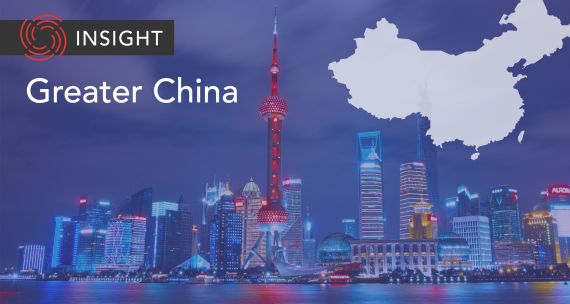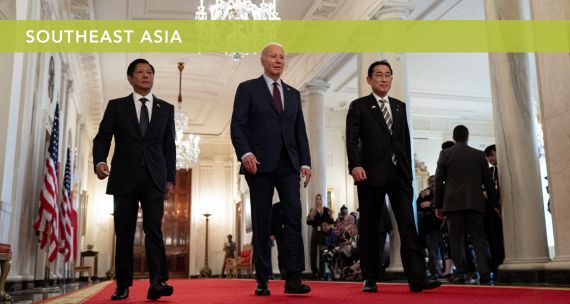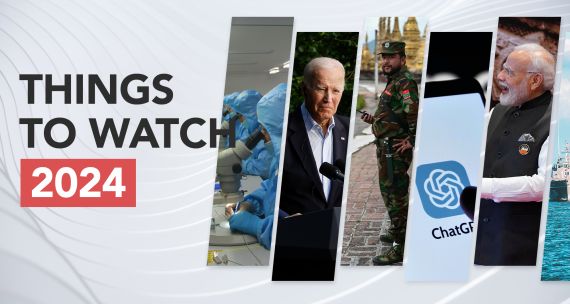The Takeaway
As China wraps up its most important annual political meetings, collectively known as the ‘Two Sessions,’ the ‘zero-abstention’ “election” of Xi Jinping as Chinese president (for the third time), and newly configured top state organs (packed with Xi’s allies), reveal a tipping of the scale towards Chinese Communist Party (CCP) domination. The CCP also sees such power consolidation, meaning fewer checks and balances for the country’s leadership, as a way to tackle some of the country’s bureaucratic inefficiencies.
In Brief
Personnel shuffles within the State Council, China’s cabinet, saw Xi loyalist and former Shanghai party secretary Li Qiang predictably tapped as China’s new premier. Aside from Li, several other regional bureaucrats were elevated to top posts in the State Council. Politburo Standing Committee member Ding Xuexiang, former National Development and Reform Commission chairman He Lifeng, Liaoning party secretary Zhang Guoqing, and Shaanxi party secretary Liu Guozhong were elected as vice-premiers. Defence minister Li Shangfu, public security minister Wang Xiaohong, former Jiangsu party secretary Wu Zhenglong, former Guizhou party secretary Shen Yiqin, and foreign minister Qin Gang were all elected as State Councilors.
These new councillors and ministers, who will try to stabilize China’s recovering economy over the next five years, will be working under a significantly revamped State Council. According to a proposal revealed on March 7, the Ministry of Science and Technology will redistribute some of its discipline-specific responsibilities to other ministries to better balance resources. Meanwhile, a new administration for financial regulation will be created directly under the State Council to replace the China Banking and Insurance Regulatory Commission, consolidating oversight and regulatory functions for the sector. This new organ is expected to assume some responsibilities that were previously under the Chinese central bank and the securities regulatory commission. A new National Data Bureau, tasked with building a fundamental system for managing and sharing data as a resource, will also be set up. The institutional overhaul is expected to consolidate the cabinet’s decision-making power, particularly in containing risks to the country’s finance and technology realms.
Implications
In his last work report delivered to the National People’s Congress, outgoing Premier Li Keqiang laid out a short-term blueprint for China’s post-pandemic economic recovery. Touting a restrained deficit percentage and relatively low taxes over the last five years, Li stressed reforming state-owned enterprises, providing incentives to private firms, addressing financial risks in local governments, and remedying real estate woes as priorities for 2023.
His successor, Li Qiang, known for his business-friendly and red-tape-cutting attitudes, is likely to concur. Usually in charge of economic and social affairs, China’s new second-in-command sought to reassure the business community of his commitment to ensuring a level playing field for a private sector that “promises great opportunities.” During his first press conference as premier on March 13, Li reaffirmed the government’s priorities of establishing food security and sparking rural revitalization. When asked about Sino-U.S. relations and foreign investments, Li voiced his confidence in the two powers’ economic relations, pointing to the US$760 billion in bilateral trade in 2022. Li also said he remained unsure if “the [decoupling] hype” would be beneficial to either country.
Li Qiang appointed Wu Zhenglong, who was governor of Jiangsu when Li was Jiangsu party secretary in 2017, as the new secretary general of the State Council and Li’s chief of staff. Meanwhile, selecting defence, public security, and foreign ministers as state councillors reflects China’s increasing securitization. Qin Gang, fresh from his ambassadorship in the U.S., has found it difficult to disassociate himself from the term “wolf warrior.” In a recent press conference, he described the phrase as a “narrative trap.” While there are signs — like the groundbreaking Saudi Arabia-Iran deal — that China is seeking more productive engagement abroad, the combative attitude cultivated by the country’s top diplomats is unlikely to go stale. Another notable State Council appointee is Shen Yiqin, who is the only woman and the only ethnic-minority State Councilor.
What's Next
- A new central leadership shouldering urgent challenges
A sense of urgency awaits new central government leaders. They will have to boost China’s technological self-reliance and defuse several ticking time bombs, such as mounting local debts, that threaten economic stability. Despite major hobbles like U.S. semiconductor export controls, China’s technocratic leadership has expansive ambitions for domestic chipmaking, artificial intelligence, and new energy. In terms of domestic governance, real estate and health care are just two of many pressing issues.
- A business-friendly premier under Xi’s wings
As the first regional official without national experience turbocharged to the premiership, Li Qiang’s tenures in Zhejiang and Shanghai were marked by improvements in the business environment, including Alibaba’s rise to prominence and Tesla’s entry into China. While some point out that the 63 year old may simply be an “implementer” of Xi Jinping’s policies, others believe that his position as the president’s close ally and trusted protégé may give him more sway in the execution of economic policies.
- Rethinking China’s relationship with the world
Qin Gang’s rapid ascension after just one U.S. ambassadorship shows that it is in China’s interest to steer Beijing’s hostile relationship with Washington back to a stable course. But China also does not want to appear weak. The stalemate between Russia and Ukraine has made Beijing uneasy; at the same time, China continues to harbour wide ambitions of becoming a major diplomatic player worldwide.
• Produced by CAST’s Greater China team: Maya Liu (Program Manager); Liam Lau (Analyst); and Irene Zhang (Analyst).




